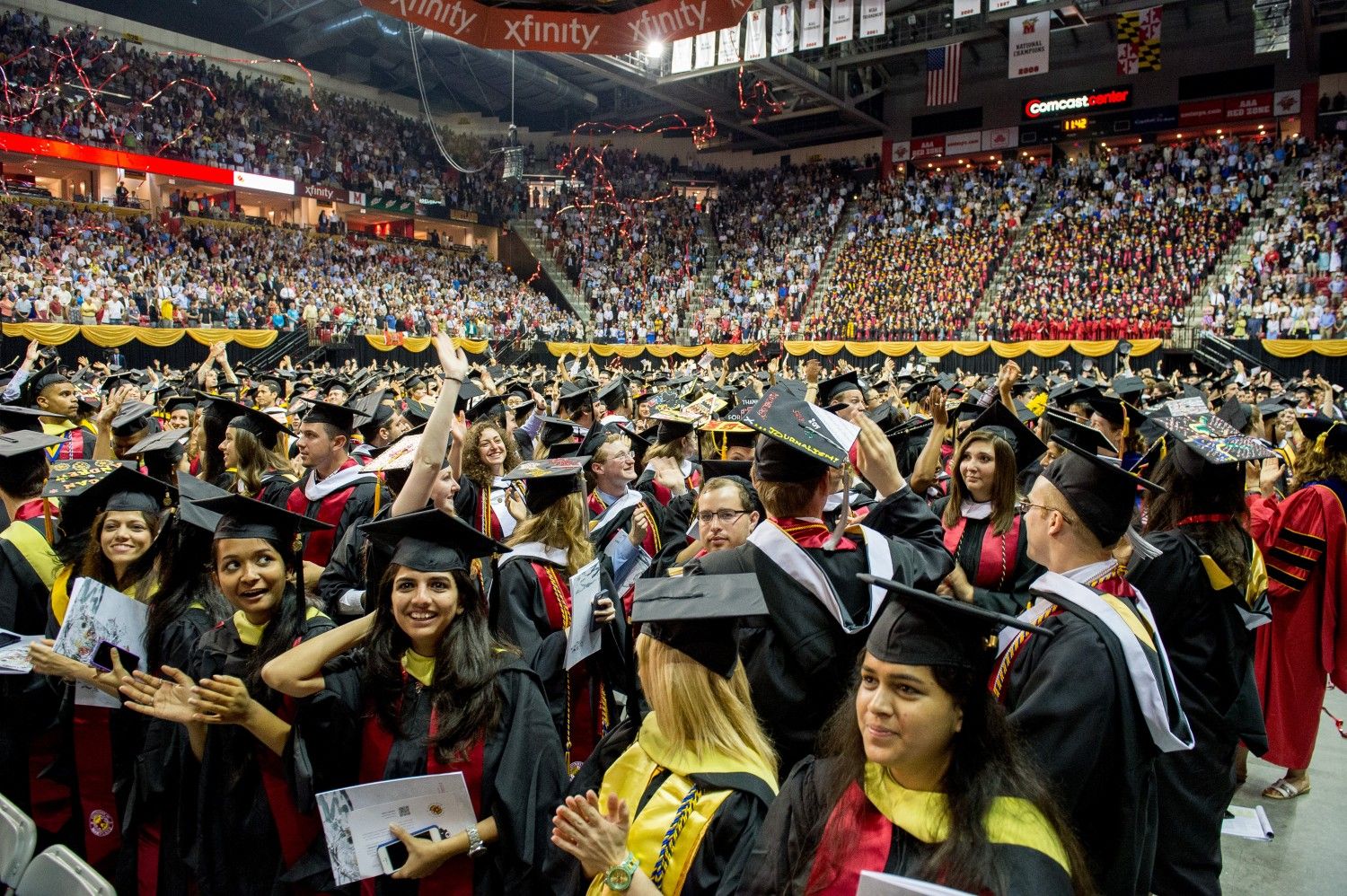Views expressed in opinion columns are the author’s own.
Even I, someone who has tracked the warped priorities of the University of Maryland for years with an intensity bordering on obsession, was surprised at the announcement that former Director of National Intelligence James Clapper will deliver the winter commencement address. The take on this one is pretty simple: Clapper is a bad choice — but he’s an extremely on-brand choice for this university. For years, he oversaw the United States’ massive surveillance apparatus, and he now works for a think tank funded by companies like Lockheed Martin and Northrop Grumman. He may be the personification of the cybersecurity honors college.
Sure, it’s weird that both Clapper and university President Wallace Loh emphasized Clapper’s commitment to truth-telling. Loh said Clapper had a reputation for “speaking truth to power,” when Clapper is perhaps most famous for giving false testimony to Congress about whether the government was collecting data on millions of Americans (it was). Why would you say your speech will highlight the assault “on those institutions that depend on truth and empirical facts,” if your most notorious moment is not giving accurate information to Congress and the American people?
But to avoid permanent brain poisoning, it’s wise not to think about such things for too long. Take a deep breath. UMD’s gonna UMD. So instead of dwelling on Clapper specifically, I want to use this column to explore the genre of the commencement address and propose a revision to the current way of doing things.
Commencement addresses are almost universally awful; this is not a novel observation. They’re usually snooze-inducing, so banal in their advice as to be offensive and filled with awful “inside jokes” about the university (“I may not be at rails, but it sure is lit to be with you all today,” etc.). But why?
There are surely structural factors that make such speeches difficult to pull off: the difficulty of appealing to students and parents combined with most students wanting you to finish talking as soon as possible. However, I think the underlying cause of broad commencement address shittiness lies in who universities choose to give the speeches. For these speeches, universities usually ask the rich, the famous, those who have been successful in government — the winners of American life. And if you think, as I do, that the purpose of a commencement address is to impart some wisdom to the graduates, the winners of American life are the last people you’d want to speak.
Becoming wealthy or famous or powerful in America requires somewhat strange moral views; the experience of power and wealth tends to warp one’s moral perspective even further. Let’s take as an example some advice Steve Jobs gave at Stanford, in one of the most celebrated commencement addresses in recent memory: “Don’t let the noise of others’ opinions drown out your own inner voice.”
Now, this isn’t very good advice. Often times, one can have a deep conviction that’s even more deeply misguided. Sometimes your inner voice is wrong. And in those cases, you need the “noise” of other people’s opinions! In fact, a moral life largely requires figuring out how to balance one’s instincts with external feedback; figuring out who you feel comfortable dismissing as a hater and whose advice you may trust more than yourself.
The kind of blinkered single-mindedness advocated by Jobs might — if you’re extremely, extremely lucky — get you rich. But it’s also a ticket to isolation and misery. Reading Jobs’ life advice, it’s difficult to avoid thinking about his death: Jobs died completely unnecessarily and possessing the resources to buy the best medical care in human history, because he refused for months to listen to his doctors and begin cancer treatment.
So, if this university actually wants to impart moral wisdom to its graduates (and not just to get the school into the mainstream news for a day), it should stop inviting the rich and powerful. What if, as an experiment, this university chose a speaker randomly from a list of everyone who studies or works here? Those selected, if uncomfortable, would obviously be allowed to turn down the invite. But if they accept, that person would be asked to share a short story — five to 10 minutes — about something they’ve done in their life they were really proud of. We’d likely still get some stories about career or scholastic success — but I bet you’d also get stories about normal people, successfully navigating family obligations and friendships. It might not be as polished as James Clapper’s speech this December, but it will be miles more morally valuable.
Max Foley-Keene is a senior government and politics major. He can be reached at maxfkcap2016@gmail.com.



